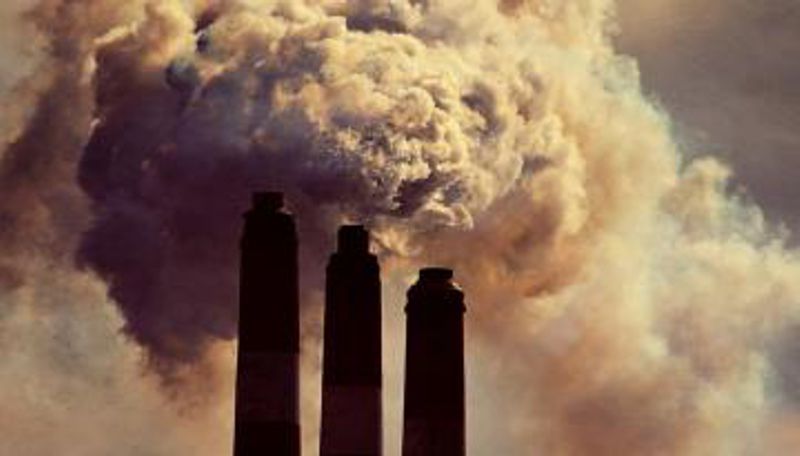There's more carbon in the atmosphere than any time in recorded history, new measurements show.
Despite humanity's best efforts carbon dioxide levels reached 407.8 parts per million last year, up from 405.5 the year before, according to the World Meteorological Organization (WMO).
"There is no sign of a slowdown, let alone a decline, in greenhouse gases concentration in the atmosphere despite all the commitments under the Paris Agreement on Climate Change," said WMO secretary-general Petteri Taalas.
Scientists say a safe level of carbon dioxide in the atmosphere would be about 350 parts per million. Anything above that will cause warming - which is accelerating.
"Back then, the temperature was 2-3C warmer, sea level was 10-20 meters higher than now."
"It is worth recalling that the last time the Earth experienced a comparable concentration of carbon dioxide was 3-5 million years ago," said Taalas.
"Back then, the temperature was 2-3C warmer, sea level was 10-20 meters higher than now."
The annual increase between 2017 and 2018 was higher than the average over the last decade. It's now 47 percent higher than in pre-industrial times, when the mass-burning of fossil fuels began.
- A Government with fingers in its ears
- A thought about climate change.
- Climate anxiety is real, and young people are feeling it.
- Climate change and inequality 'threaten the very existence of humanity'
While carbon dioxide accounts for about 80 percent of the warming effect, concentrations of other dangerous gases - such as methane - is also surging. Methane is now at 1869 parts per million, 159 percent higher than in pre-industrial times. More than half of methane emissions are thanks to human activity, such as cattle farming and agriculture.
While many countries have pledged to reduce emissions - and in New Zealand's case, become carbon-zero by 2050 - large emitters such as the United States are dragging the chain.
"We need to translate the commitments into action and increase the level of ambition for the sake of the future welfare of the mankind," said Taalas.
If emissions continue to rise over the coming decades, scientists fear feedback loops will accelerate the devastating effects, and leave large parts of the planet uninhabitable, if not underwater, by the end of the century.


